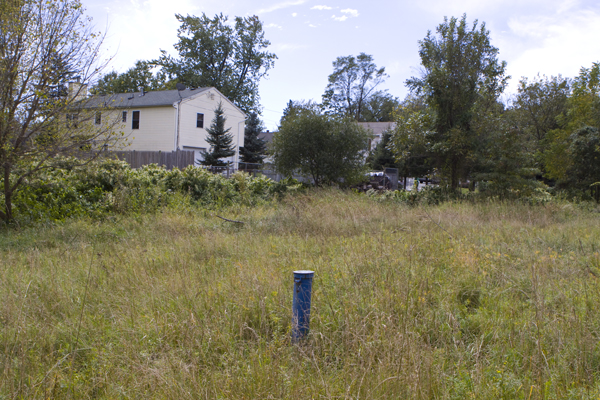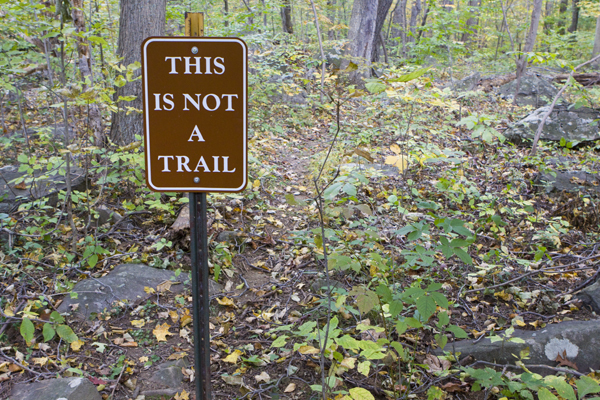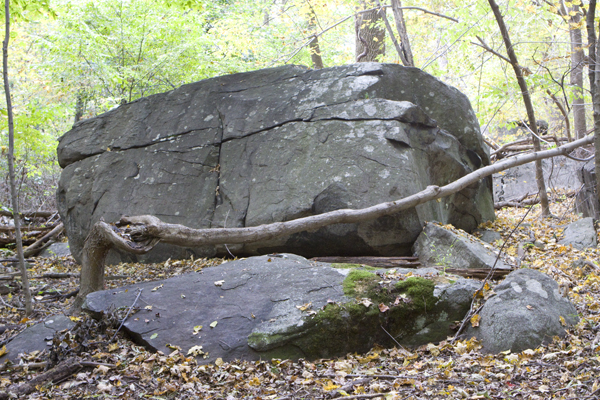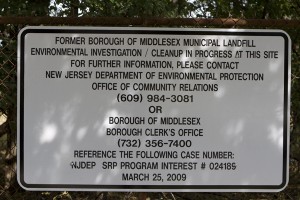
Toxic daycare appears located in an idyllic country setting – but that’s an old landfill in the backyard (read on!)
Imagine the anguish of being told your child was exposed to cancer causing industrial chemicals while at daycare.
Our kids went to daycare, so I understand a parent’s concerns and fears – but our worst health fear for our kids was contraction of pink eye.
Yet, almost 3 years to the day after the tragic Kiddie Kollege episode where 60 toddlers were poisoned by mercury vapors while at daycare (see NY Times “After Mercury Pollutes a Day Care Center, Everyone Points Elsewhere”) that’s exactly what another group of New Jersey parents were told last week.
And again, similar to the Kiddie Kollege case, (see NY Times “Memo Shows Agency Knew of Danger in Child Care Building“ ) the DEP knew or should have known and failed to take steps to prevent the problem or adequately warn parents.
So here we are again. We were disgusted but not surprised to learn that yet another toxic daycare center was discovered operating in NJ in Middlesex Boro. This is an intolerable situation – DEP must stop putting our kids at risk and engaging in crisis management, reacting to one scandal after another.
Last week, the local newspaper reported: New tests show elevated chemical vapor levels in Middlesex Borough preschool
MIDDLESEX BOROUGH – A second round of tests has confirmed the presence of elevated vapor levels of two chemicals inside a local church preschool, but not in amounts anywhere near enough to shut the facility, the borough’s environmental engineering firm has reported…. According to Ferguson, the latest air samples showed levels of TCE fumes at 16 micrograms per cubic meter in the preschool room at the church complex and 9.7 micrograms per cubic meter in the youth lounge. The findings for benzene fumes were eight micrograms per cubic meter in the preschool room and 13 micrograms per cubic meter in the youth lounge.
“These levels do not pose an adverse health risk,” said Ferguson. …
Mayor John Fuhrmann, who attended Monday night’s meeting, said he’s satisfied with the way the company is handling the tests, adding that he expects the firm to present a remediation proposal “as soon as possible.”
Both Fuhrmann and Ferguson noted that the source of the vapors has not been determined, but said the firm is working to find that out.
Trichloroethylene is a common household cleaning solvent, often used as a degreaser, Ferguson said. It is odorless in the amounts found in Sadat’s air samples.
First, I suspected that the local reporter got badly spun, because right off the bat I knew that Mr. Ferguson was factually in error and was therefore misleading parents with his bogus claim that the levels posed no adverse health risk.
Here are some facts: The DEP indoor air level for benzene, a proven human carcinogen, is 2 microgram per cubic meter. The reported levels in this preschool are 13 micrograms, which is more than 6 times or 650% higher than DEP’s indoor air level.
The DEP indoor air level for TCE, a proven human carcinogen, is 3 micrograms per cubic meter. The reported levels are 16 micrograms, which is more than 5 times or at least 533% higher than DEP’s indoor air level. In August tests, the TCE levels were even higher (the reader can confirm this and read the complete DEP Vapor Intrusion Guidance document here).
Yes, these are DEP’s chronic indoor exposure levels, but there is great uncertainty regarding children’s health effects and exposure is completely preventable.
Children are particularly susceptible to the adverse health effects of cancer causing chemicals because their lungs are still under development; they have high inhalation rates relative to body mass, high lung surface area per body weight, low lung clearance rates, narrow lung airways, and immature immune systems. Children metabolize chemicals differently than adults and are far more vulnerable to chemical exposure than healthy adult males used to calculate most risk assessments.
The “acceptable risk” of a child’s exposure to industrial chemicals while at a daycare is ZERO (0) – “ND” or “non-detect”
Parents can refer to federal toxicological profiles of benzene and TCE here – the common sense bottom line is to minimize exposure:
“Living near gasoline fueling stations or hazardous waste sites may increase exposure to benzene. People are advised not to have their families play near fueling stations, manufacturing plants, or hazardous waste sites.“)
Second, I was baffled as to why a Mayor would be satisfied with this totally unacceptable situation.
Well, it turns out that the source of the problem is the Middlesex Boro landfill and/or underground gasoline storage tanks (UST) 100 feet or so from the day care center. So we now understand why the Mayor would have an incentive to minimize the problem.
Third, I was curious as to why a consultant that is known for the cleanup of hazardous waste sites was suggesting that common household cleaning compounds might be a source of the problem in the pre-school (and not the old landfill and USTs). These volatile organic industrial chemicals have poisoned soil and groundwater at hundreds of sites in New Jersey, including the indoor air of nearby buildings.
Well, in turns out that the consultant works for Middlesex Boro, who owns the liability for the landfill and UST problems, so again we now understand why the consultant’s first loyalty is to his client and why they too have professional and legal liability incentives to minimize the problem.
So I took a trip out there. I spoke with the day care center owner, toured the site, spoke with local officials and neighbors, and took some photographs.
What I saw confirmed my suspicions, so I filed OPRA requests with the Middlesex Boro clerk’s office and the DEP to get the data and smoking guns.
I also will send a letter to DEP Commissioner Mauriello that makes a series of recommendations, the most important being immediate installation of a subslab vapor recovery system at the day care center. If such a system is not installed immediately (less than 2 weeks) then the facility should be closed until a system is installed.(the letter is similar to Memo to DEP: Protect Kids – Enforce the Law
DEP recently oversaw installation of a system at Atlantic Highlands Elementary School, where indoor air levels were significantly lower than in this Middlesex preschool. (see: A Win for the Kids and Parents of Atlantic Highlands
US EPA installed a system in the Franklin Township Elementary School where, again, where levels were significant lower than in Middlesex.(see EPA Final Franklin Elementary School Presentation)
The children of Middlesex Boro deserve at least the same level of protection as that provided by DEP and EPA in other school settings.
More shoes to drop in this story, as we explain what went wrong, why it went wrong, and who is accountable.
Part II – Corzine daycare center reforms failed (Wednesday)
Part III – DEP ignored repeated warnings which led to tragedy (Thursday)
Part IV – What the case files say – (pending OPRA replies)
Part V – The solution installed – subslab vapor mitigation system (pending)
Part VI – Lessons learned and real reform agenda (pending)

groundwater pollution monitoring wells at perimeter of landfill almost in backyards of surrounding homes.


















